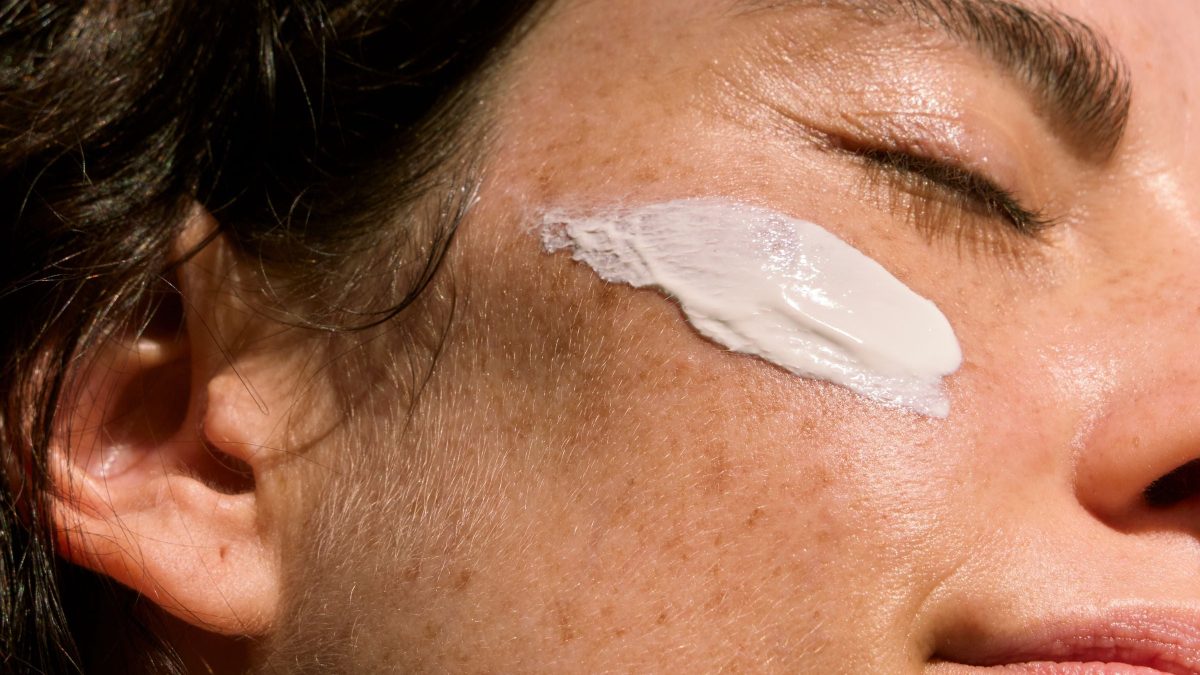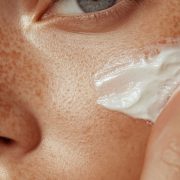Breaking Down the Pros, Cons, and Myths Around Metal-Based and Chemical Sunscreens
Posted on July 10, 2025 Written by: 100% PURE®

Sunscreen isn’t just an extra—it’s your skin’s daily armor. Whether it’s sunny, cloudy, or snowing, harmful UV rays are always at work, speeding up aging, causing dark spots, and increasing the risk of skin cancer. That’s why sunscreen is a must, not a maybe.
But when it comes to choosing one, things get complicated. Mineral or chemical? Each camp swears theirs is best. Our guide will break down the facts, clear up common myths, and help you choose the right formula for your skin type, lifestyle, and values. Ready to make your SPF work smarter? Let’s get started.
Understanding Sunscreen Basics
To truly protect your skin, it’s important to understand what does—and what terms like “broad-spectrum” actually mean. A broad-spectrum sunscreen guards against both UVA and UVB rays. UVB rays are the main culprits behind sunburn and play a key role in the development of skin cancer. UVA rays, on the other hand, penetrate deeper into the skin, accelerating signs of aging like wrinkles and dark spots. Both are harmful in different ways.
That’s where the , commonly known as SPF comes in. SPF measures how well a sunscreen protects against UVB rays. While it doesn’t measure UVA protection, higher SPF values still offer more overall defense. The right sunscreen covers all these bases—so your skin stays safe and strong.
What Is Mineral Sunscreen?
, also known as physical sunscreen, uses natural minerals like zinc oxide and titanium dioxide as active ingredients. These minerals sit on the surface of the skin and act like tiny mirrors, reflecting and scattering UV rays before they can penetrate and cause damage.
Why people love it? It’s often praised for being reef-safe, making it a more eco-friendly option. It’s also ideal for sensitive or acne-prone skin, with a low risk of irritation, and it provides immediate protection—no waiting time needed.
Downsides? Mineral formulas can leave a white cast, feel thicker or chalky, and tend to be less water-resistant than their chemical counterparts.

What Is Chemical Sunscreen?
Chemical sunscreen works by absorbing into the skin, where its active ingredients—like avobenzone, oxybenzone, and octinoxate—convert UV rays into heat, which is then released from the skin. Instead of blocking rays on the surface, it neutralizes them beneath.
The perks? Chemical sunscreens usually have a lightweight, sheer texture, making them easy to layer under makeup. They also tend to be more water- and sweat-resistant, making them a popular pick for athletes and beachgoers.
However, they come with a few drawbacks: potential skin irritation, especially for sensitive types, possible hormonal effects, and a wait time—usually around 15–30 minutes—before they become effective.
Mineral vs Chemical: Which One Is Safer and More Effective?
When it comes to choosing a sunscreen, safety and effectiveness depend on your skin type, lifestyle, and environmental values. Mineral sunscreens are often recommended for sensitive or allergy-prone skin, as they sit on the surface and are less likely to cause irritation. Chemical sunscreens, while more sheer and water-resistant, can sometimes trigger sensitivity or breakouts.
Environmentally, mineral options are reef-safe, while certain chemical ingredients like oxybenzone and octinoxate have been to coral damage. For darker skin tones, chemical formulas tend to blend better, whereas mineral ones may leave a white cast.
Dermatologists agree: both types protect well when used properly. The best sunscreen is the one you’ll use consistently—so find one that suits your skin and lifestyle.
Common Myths About Sunscreen Debunked
With so much conflicting information out there, it’s easy to fall for sunscreen myths that could cost your skin in the long run. Let’s set the record straight on some of the most common misconceptions.
1. “You don’t need sunscreen on cloudy days”
Even when it’s overcast, up to 80% of UV rays can penetrate clouds. That means your skin is still at risk of sun damage, even if you can’t see the sun.
2. “Dark skin doesn’t need SPF”
While melanin offers some natural UV protection, it’s not enough to prevent sunburn, hyperpigmentation, or skin cancer. Every skin tone benefits from daily SPF.
3. “Higher SPF = significantly better protection”
It’s a common assumption, but not entirely true. SPF 30 blocks about 97% of UVB rays, and SPF 50 blocks around 98%. Beyond that, the increase is marginal—not dramatic.
4. “Mineral sunscreens don’t clog pores”
While zinc oxide and titanium dioxide are generally non-comedogenic, other ingredients in the formula—like heavy oils or waxes—can still clog pores, especially for acne-prone skin. Always check the full ingredient list.

5 Best 100% PURE Sunscreens and SPF-Related Products
Looking for that are as clean and skin-loving as they are effective? 100% PURE offers SPF and antioxidant-rich skincare that not only protects but also nourishes your skin—without synthetic chemicals or toxins. Here are five standout picks to shield and restore your glow, naturally.
A soothing mineral sunscreen powered by zinc oxide, green tea, aloe, and raspberry seed oil—perfect for calming and protecting sensitive skin.
This lightweight spray offers broad-spectrum SPF along with antioxidants to refresh and protect on the go—ideal for reapplication throughout the day.
Packed with concentrated green tea antioxidants, this cream pairs beautifully with SPF to help repair and calm sun-stressed skin.
A cult favorite that helps reverse sun damage, brighten dull skin, and deliver a firm, radiant finish—perfect for morning or post-sun recovery.
This ultra-hydrating gel formula uses black tea to fight free radicals, reduce inflammation, and slow visible aging—a perfect companion to daily SPF use.
How to Choose the Right Sunscreen for You
Choosing the right sunscreen depends on your skin type, lifestyle, and how it fits into your routine.
- For oily or acne-prone skin, choose lightweight, non-comedogenic formulas.
- If you have dry or sensitive skin, go for hydrating mineral sunscreens with soothing ingredients.
- If you are an outdoorsy person, pick a water-resistant, high-SPF formula. For daily city wear, lightweight options with added protection from pollution work best.
- If you wear makeup, use a sheer sunscreen that layers well—or try a moisturizer with SPF for a simpler routine.
Tips to Maximize Your Sunscreen’s Effectiveness
Wearing —but how you use it makes all the difference. Here’s how to get the most protection from your SPF:
1. Apply about a nickel-sized amount for your face and a shot glass worth for your body. Most people underapply without realizing it.
2. Reapply every 2 hours, or immediately after swimming or sweating—even if it’s water-resistant.
3. Apply sunscreen after moisturizer, wait a minute or two, then apply makeup as usual. Look for formulas that are lightweight and fast-absorbing.
4. Use powder or spray SPF for mid-day reapplication, especially if you’re wearing makeup—so you stay protected without disturbing your look.
Your SPF, Your Skin’s Best Defense
At the end of the day, sunscreen isn’t one-size-fits-all. Whether you go mineral or chemical, the right formula should suit your skin type, lifestyle, and values. With options like 100% PURE’s clean, mineral-based sunscreens, daily protection becomes effortless—and your skin stays safe, radiant, and beautifully cared for.
FAQ Section
Q: What is the difference between mineral and chemical sunscreen?
Mineral sunscreens use ingredients like zinc oxide or titanium dioxide to sit on top of the skin and reflect UV rays. Chemical sunscreens absorb into the skin and convert UV rays into heat to prevent damage.
Q: Is zinc oxide safe for sensitive skin?
Yes, zinc oxide is one of the gentlest UV filters available. It’s non-irritating, anti-inflammatory, and often recommended for sensitive, reactive, or acne-prone skin types.
Q: Can I wear makeup over mineral sunscreen?
Absolutely. Just allow the sunscreen to fully absorb first. Many mineral formulas work well under makeup—look for ones with a lightweight or matte finish for easier layering.
Q: How often should I reapply SPF during the day?
Reapply every 2 hours, especially if you’re outdoors, sweating, or swimming. If you’re wearing makeup, use an SPF setting spray, cushion compact, or powder for easy touch-ups.
Q: What’s the best SPF to use with acne-prone skin?
Look for non-comedogenic, oil-free sunscreens labeled for acne-prone skin. Mineral sunscreens with zinc oxide are a great choice, as they help calm inflammation while protecting the skin.




